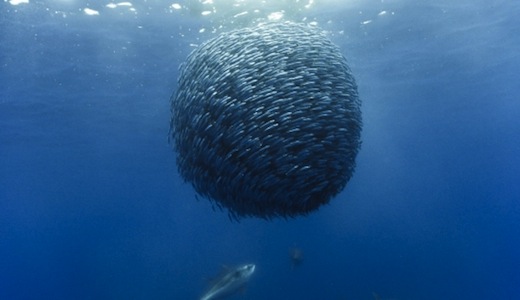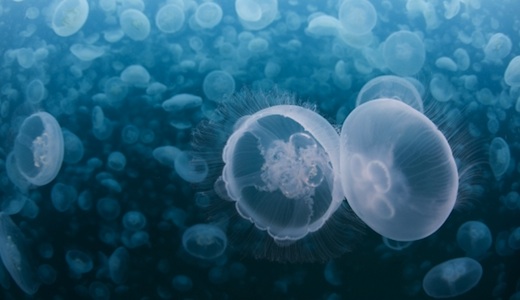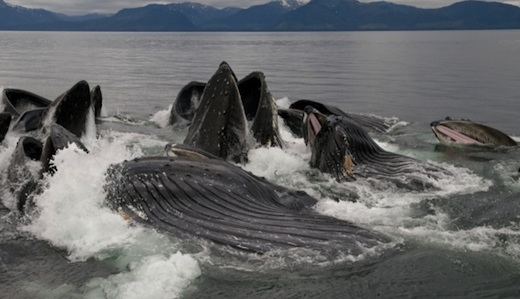Science fiction may take us into the vast unknown reaches of space, but there is a vast and unexplored alien landscape right here on Earth. Nearly three-quarters of the Earth’s surface is covered by water, although most humans are yet to explore what lies beneath. Yet those humans that have ventured under the briny blue have produced some of the most stunning documentaries and photography in the last half-century, from Jacques Cousteau’s influential Le Monde du Silence, through Luc Besson’s The Big Blue and Atlantis, to David Attenborough’s Blue Planet. The question left for directors Jacques Perrin and Jacques Cluzaud (Travelling Birds) was where could they possibly go next. Their simple answer was “everywhere”.
Narrated by Pierce Brosnan (The Ghost Writer), Oceans attempts to answer the question “What is the Ocean?” through images and emotions. Shot over four years in all the oceans of the world, the documentary discreetly and intimately follows sea creatures both familiar and wholly alien, reveal a world that is beautiful, fraught with danger and is in its own threatened fragile state of danger. Coupled with a timely message on the importance of keeping our planet safe, the film is a narrative on the very nature of one of the most powerful forces on Earth.
Oceans is, quite simply, one of the most breathtaking pieces of visual storytelling that has emerged in recent memory. Utilising state-of-the-art underwater digital photography, and plain old 35 mm film for stunning exterior shots, the French filmmakers provide a level of detail that is all too rarely seen on the big screen. There are, of course, incredibly familiar elements to the film, with the extended pieces on penguins and birds swooping to catch fish emerging from an already saturated market on the subject. As a result, the film does not confine itself to these handful of undersea critters, but rather features over 90 different types of creature in the film, including the ‘winged’ Oriental flying gurnard, the etheric blanket octopus, the Jellyfish Echizen, the alien-looking giant cuttlefish and Stellar’s Sea Cow, snuffling the ocean floor like a giant manatee. A crab battle on the ocean floor provides a surprising action sequence, and the anthropomorphisation of many of the creatures provides a surprising amount of comedy. Coupled with Bruno Coulais’ (Babies, Coraline) score, even those familiar elements are elevated to a grand operatic vision, and it is difficult to not feel at least a little bit moved by the visual poetry.
Unlike the recent trend towards non-narrative documentary storytelling, including Thomas Balmès Babies or Godfrey Reggio’s Koyaanisqatsi, Oceans has a very strong voice and an even stronger message. The voice, provided by ex-Bond Brosnan, can be a little bit patronising at times. The emotive and clumsily poetic language with which he describes what we are seeing is perhaps too overbearing, although the ocean is indeed a powerful force. (Incidentally, the French version appear to run at least 15 minutes longer with the original narration from Jacques Perrin). Rather it is the visuals that speak a thousand words. However, there is a method in this emotive madness. The principle purpose of the film is not to educate or inform, as a typical BBC or National Geographic documentary might intend to do, but rather create this sense of longing emotion. Whether you’ve seen dozens or a handful of oceanic documentaries over the years, it is unlikely that the documentary will not speak to you on some level. Oceans is a call to arms for the human race: if we are touched by anything we are seeing on-screen, then we cannot afford to let it slip away.
A stunning visual narrative that provides unprecedented access to the world beneath the surface of the sea. Oceans not only reveals a beautiful alien landscape that lurks just off the coast of where we live and breath, but one that is imminent danger of collapsing under the weight of humankind’s encroachment. This is essential viewing.
Oceans was released on 26 May 2011 in Australia by Hopscotch Films.








No Responses